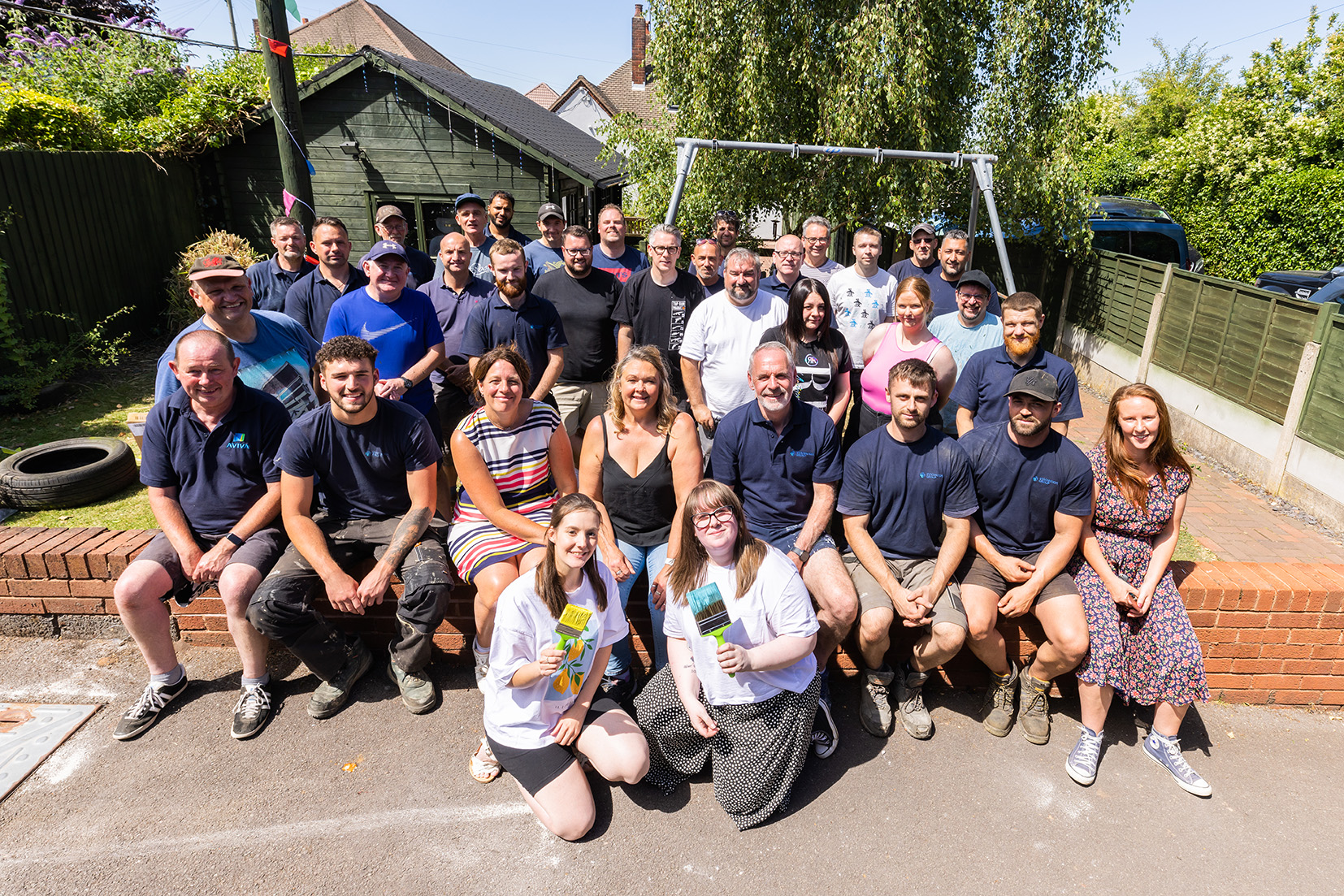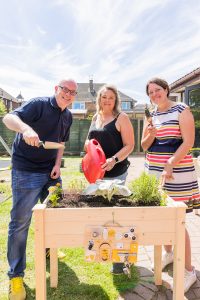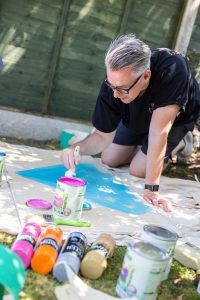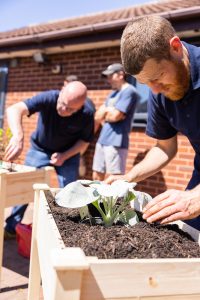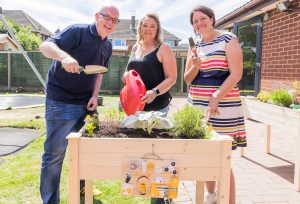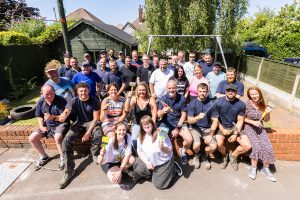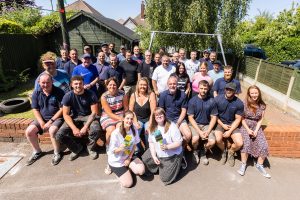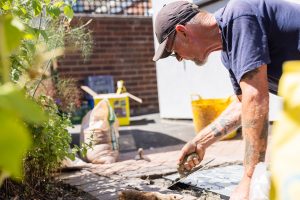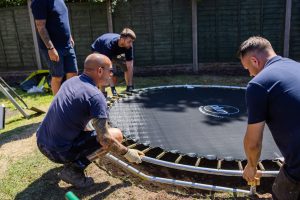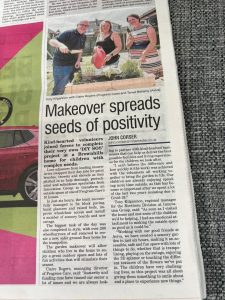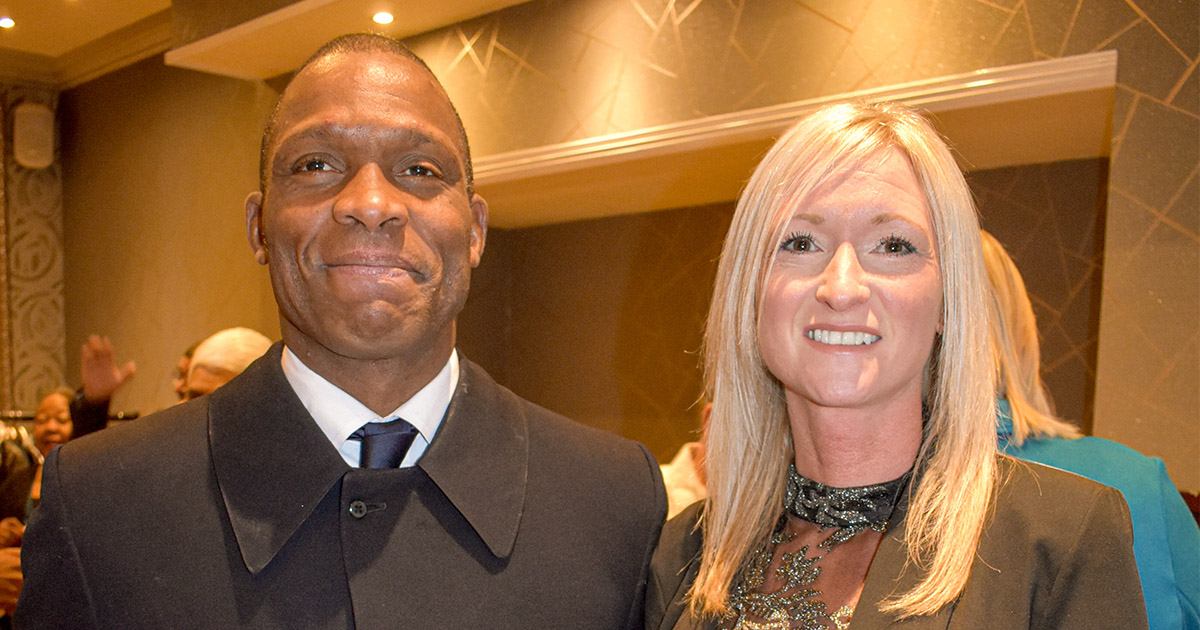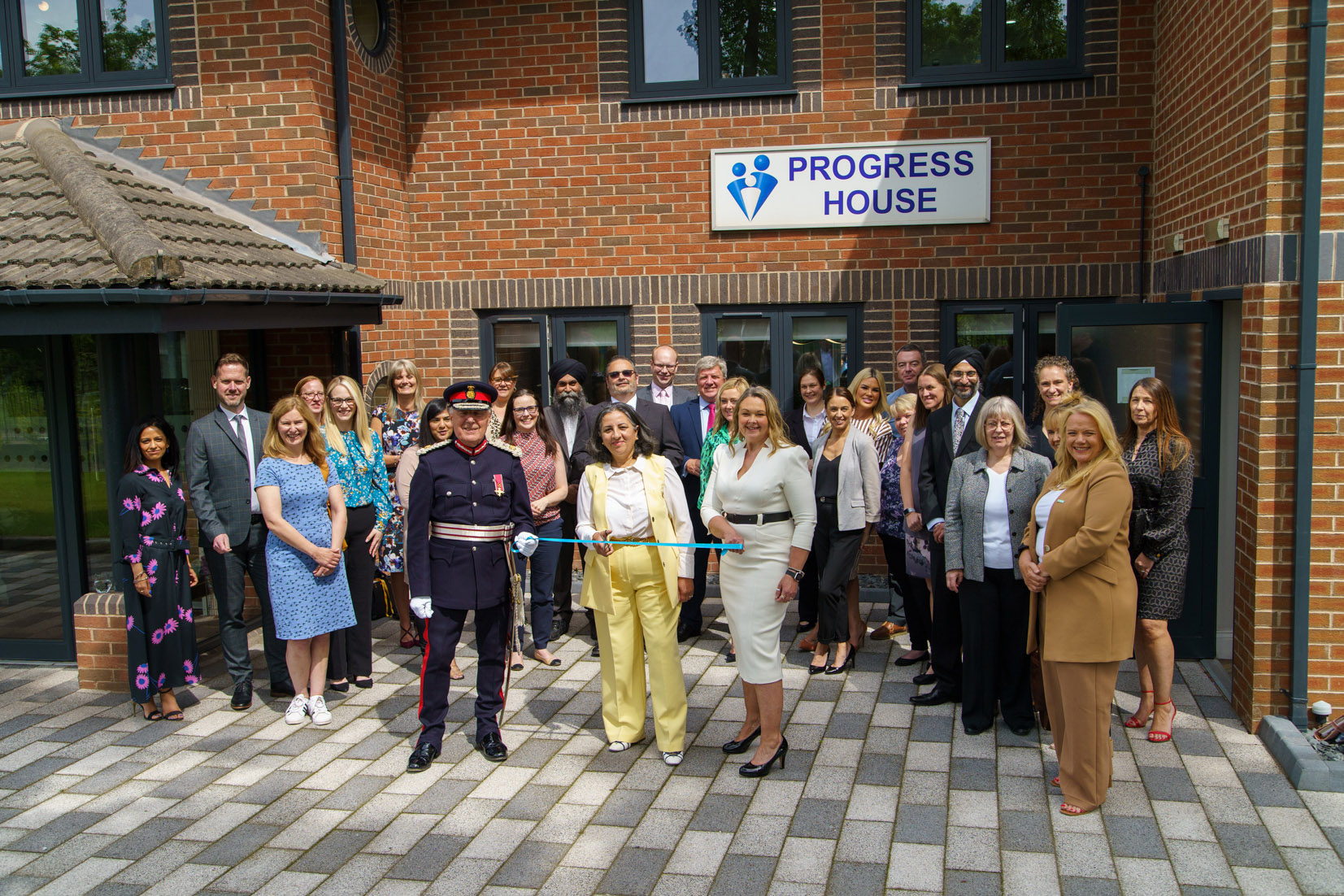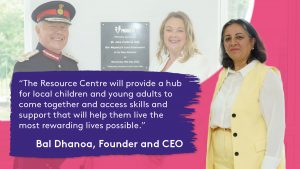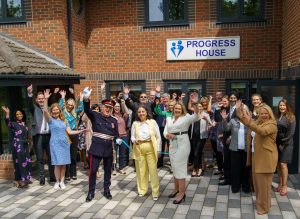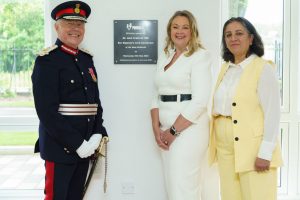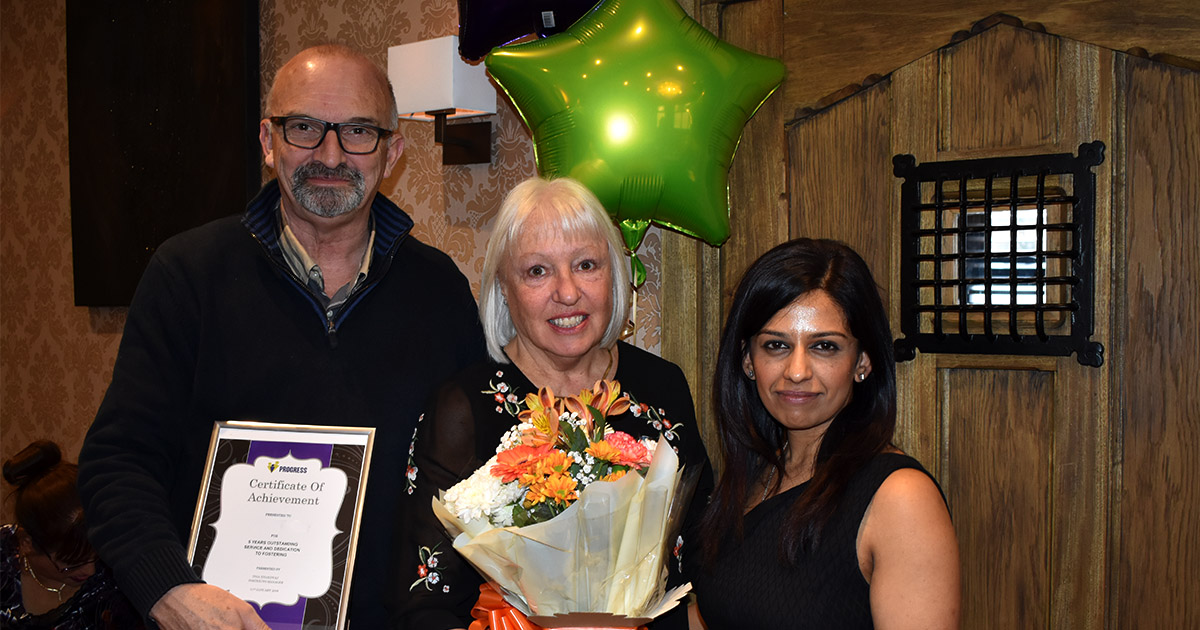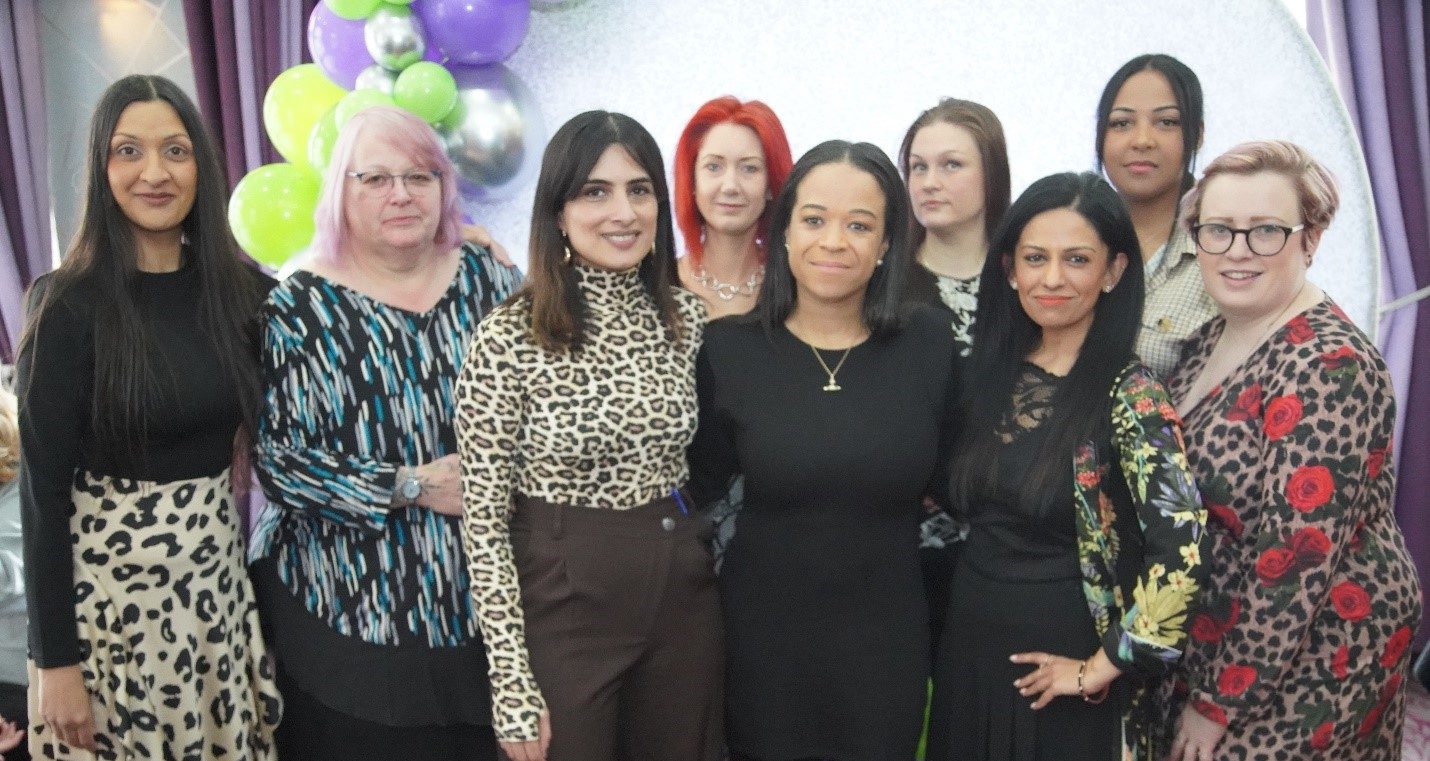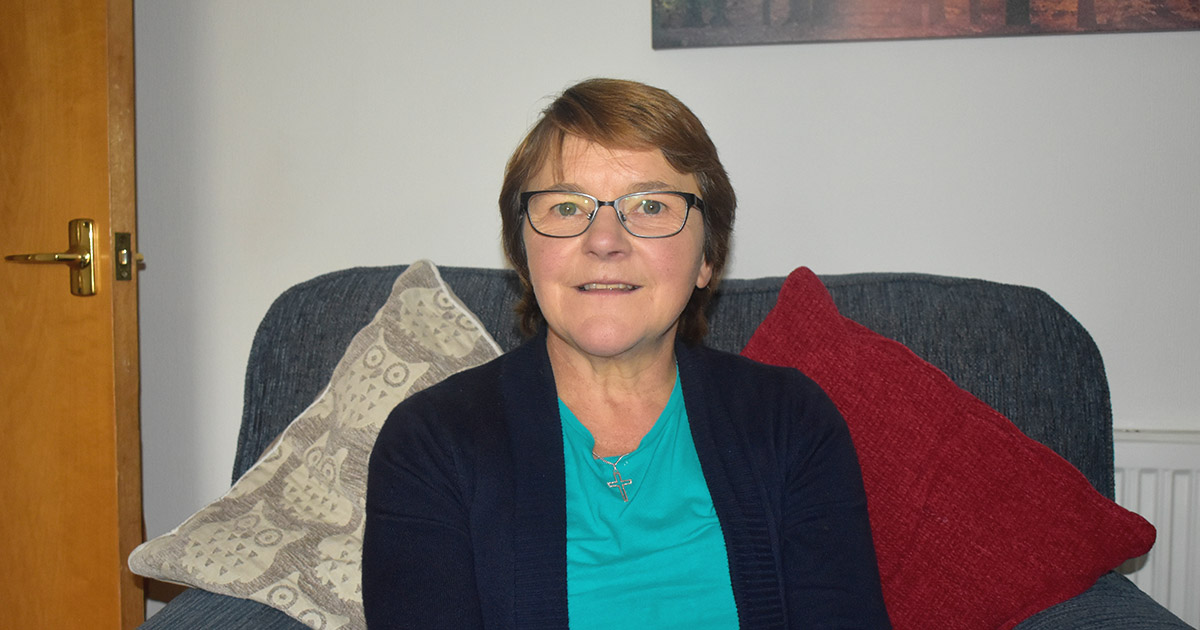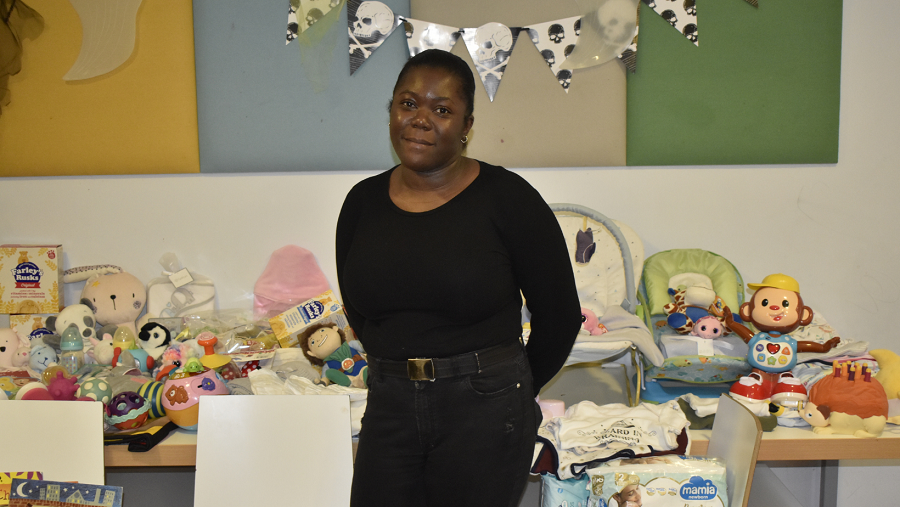Thirty kind-hearted volunteers joined forces to complete a DIY SOS project at one of our homes recently, which supports children with very complex needs.
Loss adjusters from the leading insurer Aviva, swapped their day jobs for paint brushes, trowels and shovels as they pitched in to help drainage, geotechnical and subsidence specialists from Innovation Group plc to transform the outside space at Oak Cottage.
It is the first time the two specialists, have come together on a challenge and in just six hours they successfully managed to fix block paving, build planters and raised beds, improve wheelchair access and install a number of sensory boards and new swings.
The biggest task of the day was also completed in style, with over 200 wheelbarrows of soil removed to create a new, safer ground floor home for the trampoline.
More than 180 hours of time went into the garden makeover, which will now allow the eight children who live in the home to enjoy a great outdoor space and lots of fun activities that will stimulate their senses.
Our Managing Director, Claire Rogers is keen to see the future impact of the project: “Austerity and funding cuts have caused our sector a lot of issues and we are always looking to partner with kind-hearted businesses that can help us deliver the best possible facilities and living experiences for the children we look after.
“All of them have complex needs and physical disabilities and the garden is such an important place for them to relax, play and, in some cases, learn. The outside space needed some ‘TLC’, so we were delighted when a chance conversation with Aviva employees turned into this fantastic DIY SOS.” “I can’t believe the difference and how quickly it was achieved with the volunteers all working together to bring the garden to life. Our children are already enjoying spending more time outside, as this has become so important after we spent a lot of the last two years isolating due to Covid-19.”
Aviva, is committed to supporting the local communities it operates in and offers all employees up to three ‘volunteering days’ every year. So when the project at Progress was raised, a team of seventeen loss adjustors put themselves forward, travelling the length and breadth of the country to take part. Due to the complex nature of the DIY SOS challenge, the company reached out to Innovation Group, one of its leading supply chain specialists, to help it with drainage, block paving and subsidence work in the garden.
Tanya Bellamy, Commercial Field and Major Loss Leader at Aviva, commented: “The response to the Progress project was fantastic, with many of our volunteers travelling hundreds of miles to take part.
“They really threw themselves into it, working closely with the more experienced Innovation Group staff to paint, dig, plant and repair. It’s a bit different to their day job but judging by all the smiles during the day and the reaction we saw from the children, it was six hours well spent.”
Tony Kilgannon, Regional Manager Northern Division at Innovation Group, added his support: “As soon as I visited the home and met some of the children we’d be helping, I had an emotional attachment to making the outside space as good as it could be, the same attachment that I know the rest of our staff had during the day.
“Working with our good friends at Aviva, we have created a sensory garden in just six hours, making it an accessible, safe and fun space with lots of things to do, whether that is trampolining, playing on the swings, enjoying the 3D spinner or touching the different textures of the flowers we’ve put in.
“The children have very challenging lives, so this project was all about giving them something to smile about and a place where they can experience new things.”
Progress would like to say a big thank you to Aviva and Innovation Group for what they have given the children.
The story has been featured in the below news outlets:
Birmingham Mail
Black Country Radio
Business Daily
Business Desk West Midlands
Business Mondays
KQ Education Group
UK Daily News





